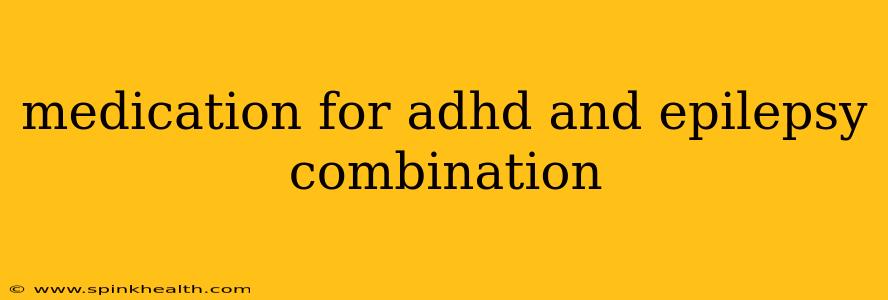Navigating the Complexities of ADHD and Epilepsy: Finding the Right Medication Combination
The journey of managing both ADHD (Attention-Deficit/Hyperactivity Disorder) and epilepsy can feel like navigating a complex maze. Finding the right medication combination is crucial for achieving optimal control of both conditions, but it’s a process that requires careful consideration, close collaboration with a medical team, and a deep understanding of potential interactions and side effects. This isn't a one-size-fits-all solution; what works for one person might not work for another. Let's explore this intricate landscape.
My name is Dr. Evelyn Reed, and I've spent years working with patients facing this dual challenge. I'll share my insights and guide you through the key considerations.
What are the common challenges in managing ADHD and epilepsy together?
Many medications used to treat ADHD and epilepsy can interact with each other. This is a crucial point. Some combinations can lead to amplified side effects or reduced effectiveness of one or both medications. Additionally, some medications used for epilepsy can exacerbate ADHD symptoms, or vice versa, creating a delicate balancing act. The potential for drug interactions requires meticulous monitoring and careful adjustments. A neurologist and psychiatrist working collaboratively are essential in this process.
What medications are typically used for ADHD?
Commonly prescribed ADHD medications fall into two main categories: stimulants (like methylphenidate and amphetamine) and non-stimulants (like atomoxetine and guanfacine). Stimulants are often the first line of treatment due to their efficacy, but they can sometimes lower the seizure threshold in individuals with epilepsy, which is a critical consideration. Non-stimulants offer an alternative but may be less effective for some individuals.
What medications are typically used for epilepsy?
Epilepsy treatment is highly individualized, with a wide range of anti-seizure medications (ASMs) available, including older drugs like valproate and newer ones like levetiracetam. The choice of ASM depends on factors like the type of seizure, the patient's age, and other health conditions. Some ASMs are known to have fewer interactions with ADHD medications than others, which is a key factor in selecting the best combination.
Can ADHD medication trigger seizures?
While rare, some ADHD medications, particularly stimulants, can potentially lower the seizure threshold in susceptible individuals. This doesn't mean everyone with epilepsy should avoid stimulants, but it necessitates careful monitoring and close collaboration between a neurologist and psychiatrist. The benefits of improved ADHD symptoms must be weighed against the potential risks. A gradual increase in dosage and regular EEG monitoring may be necessary.
How do doctors approach finding the right medication combination?
Finding the optimal combination is an iterative process. It starts with a thorough evaluation of the patient's medical history, current medications, seizure type and frequency, and ADHD symptoms. Doctors often start with one medication for each condition and carefully monitor for efficacy and side effects. Dosage adjustments may be made gradually, and the medications may be changed if necessary. Regular blood tests may be needed to monitor drug levels and detect potential adverse effects.
What are the potential side effects of combined medication?
Potential side effects can vary greatly depending on the specific medications used. They might include drowsiness, insomnia, changes in appetite or weight, mood swings, gastrointestinal issues, or other neurological symptoms. Careful monitoring and open communication with the medical team are crucial to managing these side effects.
What if my current medications aren't working?
If the current treatment plan isn't providing adequate control of either ADHD or epilepsy, it's crucial to discuss this with your healthcare providers. They may suggest adjustments to dosages, switching to different medications, or exploring additional treatment options. This might include alternative therapies or strategies to complement medication management.
The path to effective management of both ADHD and epilepsy requires patience, persistence, and a strong partnership with your medical team. Open communication is key. Don't hesitate to voice your concerns, ask questions, and advocate for your own well-being. The goal is to find the right balance that allows you to live a full and productive life.

